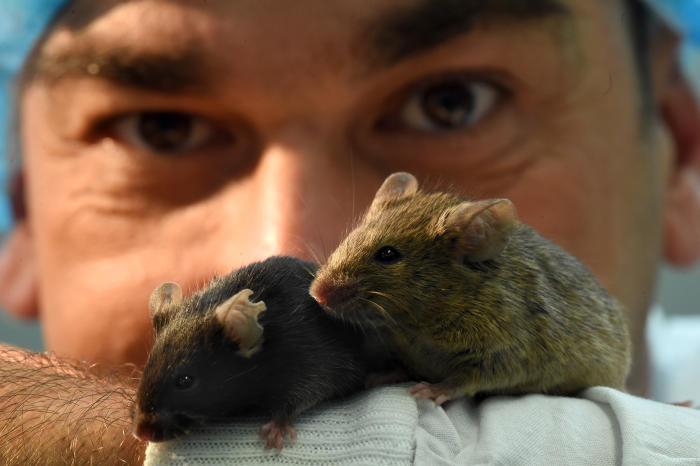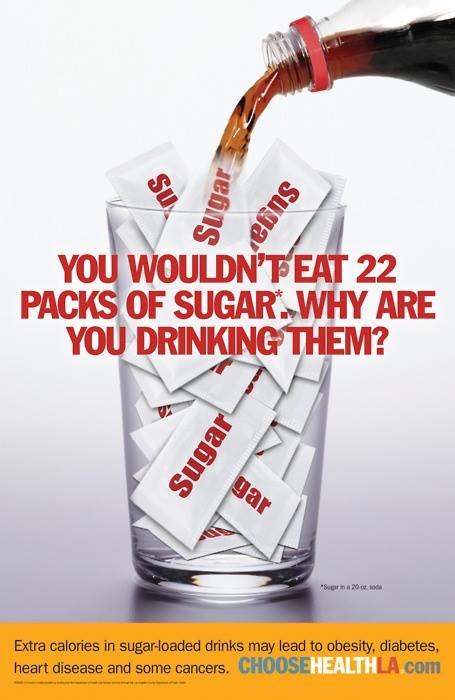Monthly Archives: February 2016
Junk drinks banned in hospital!

It can be done. It requires an engaged and proactive medical administration with the resolve to do the right thing for the community.
Hospitals should be setting the example for the people. Best example equals best practice. New Zealand is a head of us on this one…again.
I regularly hear from patients that sugar and carbs and cake and fruit juice and biscuits must be alright because the hospital ‘gives it to me’.
There is so much evidence that they are not good yet the hospitals that I work in don’t have the gumption to tackle the issue. That equals more ill health and more personal and community cost. That’s so frustrating.
“Diet soft drinks, juices, flavoured water and smoothies will be removed from the shelves and hospital menus at Nelson and Wairau Hospitals in a move that is believed to be the first of its kind in New Zealand.
The crackdown on sugary drinks will see patients and visitors to Wairau Hospital, in Blenheim, choose between milk, water, tea and coffee.
An existing Nelson Marlborough District Health Board policy preventing the sale of sugar-sweetened beverages was extended to cover artificially-sweetened beverages, flavoured water, smoothies and juices at a health board meeting in Nelson on Tuesday.
Those drinks would no longer be served to patients or sold from cafes, shops and vending machines at Wairau Hospital and Nelson Hospital from May 1.
Nelson Marlborough was the first health board in New Zealand to introduce limits on sugary drinks.
The updated policy means no pre-packaged drinks containing sugar will be available on health board sites.”
http://www.stuff.co.nz/…/groundbreaking-sugary-drinks-polic…
https://www.facebook.com/permalink.php?story_fbid=974813892613062&id=393958287365295
Astroturfing by Coca Cola – sponsoring misleading science.

Astroturfing is the practice of masking the sponsors of a message or organization to make it appear as though it originates from and is supported by grassroots participant. Wikipedia ref.
How much has the soft drink industry sponsored ‘research’ and public relations and misinformation? A lot is the simple answer. And it’s not just in the USA. It’s right here in our backyard.
Paleo makes you fat!

Nonsense was my reply on the ABC news tonight.
Unfortunately, this sort of research gets into mainstream news and hammers something which is showing benefits for real people – not mice.
I have been able to reply to this University of Melbourne research on tonight’s ABC news report. We’ll see how much I have been edited in or out. At least the opportunity to respond was given.
The study looked at the effect of an extreme diet on 9 obese mice and then has the gumption to extrapolate that to say Paleo makes you fat. The word Paleo NEVER appears in the article.
They took 18 mice that are genetically predisposed to obesity and 9 of them were fed a chow mix that was 6% straight sugar, 13% protein and 81% fat. I repeat, 81% fat in a chow form. That is about as far away as you can get from eating real food which is naturally lower in refined sugar and carbohydrate.
Where are the green leafy vegetables, pasture fed meats and healthy fats from nuts, cheese and avocado?
The weight changes were not even documented in the paper. They only referred to percentage changes in ‘Gonadal Fat Pads’. The paper makes no mention of a 15% increase in body weight for these mice. The Melbourne University press release is a sham. Either that or I am reading the wrong article.
I am all for recommending a lower carbohydrate and higher healthy fat lifestyle and will continue to do so. I do not advocate an extreme diet that is anywhere near the percentages and composition thrown out by this study.
Low Carb and Healthy Fat living does work in diabetes management. Every person I know who adopts it has an improvement in their blood glucose control, a reduction in their medications, less hypoglycaemic events and most are losing weight.
This scaremongering by the press release from Melbourne University is just nonsense.
Here’s 12 good points of evidence to consider low carb as the first approach to treating type 2 diabetes and as the most effective adjunct to pharmacology in type 1.
1. Hyperglycemia is the most salient feature of diabetes. Dietary carbohydrate restriction has the greatest effect on decreasing blood glucose levels.
2. During the epidemics of obesity and type 2 diabetes, caloric increases have been due almost entirely to increased carbohydrate.
3. Benefits of dietary carbohydrate restriction do not require weight loss.
4. Although weight loss is not required for benefit, no dietary intervention is better than carbohydrate restriction for weight loss.
5. Adherence to low-carbohydrate diets in people with type 2 diabetes is at least as good as adherence to any other dietary interventions and is frequently significantly better.
6. Replacement of carbohydrate with protein is generally beneficial.
7. Dietary total and saturated fat do not correlate with risk of CVD.
8. Plasma saturated fatty acids are controlled by dietary carbohydrate more than by dietary lipids.
9. The best predictor of microvascular and, to a lesser extent, macro-vascular complications in patients with type 2 diabetes, is glycemic control (HbA1c).
10. Dietary carbohydrate restriction is the most effective method (other than starvation) of reducing serum triglycerides and increasing high-density lipoprotein (HDL).
11. Patients with type 2 diabetes on carbohydrate-restricted diets reduce and frequently eliminate medication. People with type 1 usually require lower insulin.
12. Intensive glucose lowering by dietary carbohydrate restriction has no side effects comparable to the effects of intensive pharmacologic treatment.
http://www.sciencedirect.com/…/article/pii/S0899900714003323
http://www.nature.com/nutd/journal/…/n2/full/nutd20162a.html
https://pursuit.unimelb.edu.au/arti…/paleo-diets-weight-gain
There is an economic problem with margarine

There is an economic problem with margarine. Sales are down, profits are down. Good news from where I stand but bad for the shareholders of Unilever.
Unilever is one of the worlds biggest ‘food product’ manufacturers – notice the careful wording. Their margarine industry is on the back foot with declining sales and butter taking over.
If the biggest manufacturer of margarine in the world is looking for an exit strategy, then you know there is a problem.
No need to wait for government and Heart Foundation guidelines to change. The buying power of the consumer looking for healthier options is making the difference.
“Unilever said it wasn’t “able to stem the sustained market contraction in developed countries” in the margarine business.”
” A big part of the problem for margarine is the revival of butter after decades of being held up as the culprit for clogged arteries and expanding waistlines.
Consumers have come to see it as more wholesome and natural than margarine. Last year, unit sales of butter and butter blends in the U.S. climbed 4.2% from a year earlier while sales of margarine plummeted 8.9%.”
Keep up the good work people.
http://www.wsj.com/articles/unilever-profit-falls-after-year-earlier-gains-1453188371
https://www.facebook.com/permalink.php?story_fbid=969308233163628&id=393958287365295
Is Sugar the New Fat?
For those of you that missed SBS last night, This NZ documentary was back on again last night. New Zealand is ahead of Australia on the issue of sugar and health issues. This show was being filmed 2 years a go when I was over in NZ for a meeting where we pledged to try and make the South Pacific Sugar Sweetened Beverage free by 2025.
I caught up with most of the people in this show as well as my first get together with Damon Gameau. What a journey. ):
http://www.sbs.com.au/…/v…/506986051805/is-sugar-the-new-fat
https://www.facebook.com/permalink.php?story_fbid=962410440520074&id=393958287365295
Feeling better by cutting sugar and carbs?

“Has a Paleo, LCHF, or Ketogenic diet made you feel mentally better, cleared the “brain fog”, or improved your mood?
“Research studying the link between mental health and diet] is a very new field,” said Michael Berk, a professor of psychiatry at the Deakin University School of Medicine in Australia. “But the results are unusually consistent, and they show a link between diet quality and mental health.”
From Stewart Mclean – In Support of Paleo and Low Carb Living
https://www.facebook.com/permalink.php?story_fbid=962448593849592&id=393958287365295

